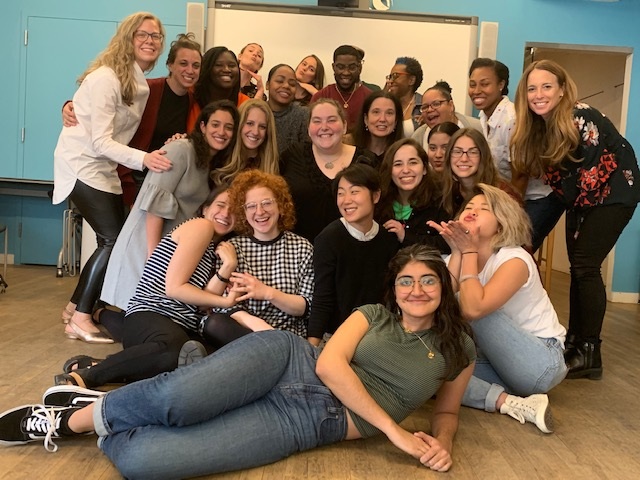Welcome P2L Interns to PORT2L
This is your access to social work drive links, resources, videos, and trainings.
GOOGLE DRIVE LINKS:
Digital Assets (photos, videos, quotes and statistics)
RESOURCES:
“The Future of Healing: Shifting From Trauma Informed Care to Healing Centered Engagement”
-Shawn Ginwright PhD
“Why Schools Should Be Organized To Prioritize Relationships”
-Katrina Schwartz
“Note to Educators: Hope Required When Growing Roses in Concrete”
-Jeffrey M. R. Duncan-Andrade
“Healing the Hidden Wounds of Racial Trauma”
-Kenneth V. Hardy
Therapy Worksheets:
Cognitive Behavioral Therapy
Self-Esteem
Anger
ARTICLES:
In 2017, there were an estimated 46.6 million adults aged 18 or older in the United States with any mental illness. This number represented 18.9% of all U.S. adults.
-NATIONAL INSTITUTE OF MENTAL HEALTH
Young adults aged 18-25 years had the highest prevalence of any mental health (25.8%) compared to adults aged 26-49 years (22.2%) and aged 50 and older (13.8%).-NATIONAL INSTITUTE OF MENTAL HEALTH
-NATIONAL INSTITUTE OF MENTAL HEALTH
The percentage of young adults aged 18-25 years with AMI who received mental health services (38.4%) was lower than adults with AMI aged 26-49 years (43.3%) and aged 50 and older (44.2%).
-NATIONAL INSTITUTE OF MENTAL HEALTH
“How To Talk With Kids About Violent Attacks In The News”: NPR's David Greene talks with Dr. David Schonfeld, director of the National Center for School Crisis and Bereavement about how to talk to children about mass shootings and trauma.
-NPR: DR. DAVID SCHONFELD
PODCASTS:
VIDEOS:
“Most of our big systems—education, healthcare, government, business—are failing our communities. What if we stopped trying to fix them? Deborah Frieze says it’s not possible to change big systems—we can only abandon them and start over or offer hospice to what’s dying. This talk explores the underlying beliefs in our culture that continue to prop up the global mindset and shares a radical theory of change that reveals how localism is the hope of the future—and you have a critical role to play.”
A seventh grader's school assignment has gone viral, as a 13-year-old girl's heartfelt slam poem about the struggle to fit in resonated with millions of people around the globe. Her teacher recorded it to show other classes, and it took off on Facebook.
"We spend so much time listening to the things people are saying that we rarely pay attention to the things they don't," says slam poet and teacher Clint Smith. A short, powerful piece from the heart, about finding the courage to speak up against ignorance and injustice.
Tracking is the separation of students by academic ability into high performing, average, and below average "tracks". Students are tracked as early as fourth grade. Allen Chen compares three tracked students and makes the points that the U.S. is evolving, but the education system remains the same and that student tracking needs to end.

